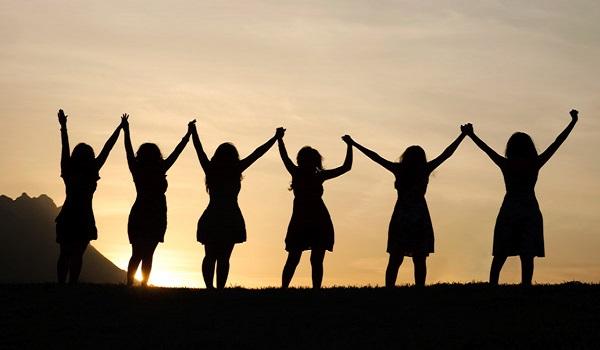Women Key Drivers of Change in India’s social Sector

The world celebrates International Women’s Day on March 8 to commemorate their achievements and contributions and raise awareness about gender equality and parity. However, one day every year is not enough to recognize the contributions that women from various strata of society have been making to bring about holistic transformations. From boardroom CEOs to aanganwadi and ASHA workers working with grassroots communities, there is a growing force of women change bearers driving India towards progress in the fields of social justice, healthcare, education, fashion, and technology, etc.
As a country, India has always witnessed testimony to dynamic leadership by women. From powerful Independence leaders as Rani Lakshmibai, Matangini Hazra, educator Aruna Asaf Ali, India’s first female doctor Kadambini Ganguly, RTI champion Aruna Roy and former ASG Pinky Anand to reformers the likes of Medha Patkar, Irom Sharmila, Manasi Pradhan, Prema Nesargi and Amala Akkineni, India never saw the dearth of powerful women who made sacrifices and smashed gender stereotypes to bring about real changes the fruits of which the people of the country have reaping the benefits of today.
These women have forced people to take them seriously and pass the baton of transformation, despite unthinkable bottlenecks that came their way, only to prove the adage that the ‘hands that rock the cradle can rule the world’.
Take the case of a 62-year-old woman from Gujarat whose story recently went viral. Navalben Dalsangbhai Chaudhary, a resident of Nagana village in Banaskantha district defied stereotypes and sparked a mini revolution in her district by selling milk more than Rs 1 crore in 2020, earning a profit of Rs 3.5 lakh per month.
Anita Devi, more popularly known as the ‘Mushroom Lady of Nalanda’, started growing mushrooms in Bihar’s Anantpur village to support her family way back in 2010. A decade later she now runs a self-help group Madhopur Farmer’s Producers Company and helps hundreds of other women across the state earn their livelihood through mushroom cultivation.
Anita and Navalben are not isolated stories of success and hope. Many like them have been contributing holistically to employing the younger generation. These women have created jobs for other women and are playing a significant part in solving the issue of unemployment by setting up small businesses.
With the help of civil society organizations and government bodies, women champions are playing a crucial role in transforming social norms.
But unfortunately, in India, far from empowering women, most are denied even their basic rights like health, education of girls for women empowerment, employment, and a respectable status in society. Project Swabhiman by Smile Foundation addresses women empowerment through several interventions in education, skill development and healthcare. Project Swabhiman aims to increase both individual and collective self-esteem and inner strength in marginalized and socially excluded women and adolescent girls. It has made a difference in the lives of over 600,000 women and girl children through its women's education, empowerment initiatives and health programs.
Gender violence has seen engaging conversations in recent times and discussions around sexual health and safety have seen growing prominence. Women cooperatives and society leaders have been trying to shape the narrative by creating awareness around the issues. Financial independence among women in rural areas especially helped hundreds and thousands of them to come out of vicious marriages as they are no longer dependent on their partners.
Leeza Mangaldas, a noted sex-positive content creator, in a recent interview to the Times of India said, that most of us inherit the framework in terms of how sex is imagined is that it is necessarily penis-in-vagina penetration, and men are the necessary predators, and women, only reluctant or dutiful participants in the context of a marital relationship. She stressed that the idea that women are forbidden from seeking or expressing their own desire or pleasure needs change. She added that the need of the hour was to reframe how we see sex such that we eliminate the shame, and our vision enables greater equality: centering consent, enabling women’s sexual agency and autonomy, eliminating discrimination based on sexual orientation and gender identity, recognizing, and making more space for asexuality, and dismantling the violence inherent in our construction of masculinity.
Breaking taboos around sexual health conversations for women, organizations like Safe Zindagi allow women to talk to female counsellors and create a safe space for conversations and help women realize the importance of sexual health for a healthy lifestyle. Safe Zindagi is an integrated online platform with expert-guided information and service offerings addressing HIV prevention, treatment, and retention in care through the public and private sectors of India. The intent of this platform is to activate at-risk, especially young, and online users, by raising awareness around better sexual health & prevention of both HIV and STIs along with linkage and adherence to treatment and prevention services.
States have also taken serious strides in empowering women with access to quality healthcare, education, opportunities for skill development and employment. I cite the example of Madhya Pradesh here. The state has overseen the implementation of welfare schemes such as the Mukhyamantri Awas Sahayata Yojana, the Kanya Saksharta Protsaahan Yojana, and the Ladli Lakshmi Yojana, among others, to provide girl students access to housing, food, and scholarships and ensure they learn, upskill, and become ‘atmanirbhar’ (self-reliant). In Madhya Pradesh, scholarships have been offered to over 280,000 students, with a monthly financial support of Rs 1,300 to boys and Rs 1,340 to girls. This figure is more than 200 percent compared to that in 2003. What we as Indians must ensure is that the ‘aadhi aabaadi’ gets its share of sunshine through opportunities to learn and express themselves. That will truly help our country march onwards with speed towards the achievement of sustainable development goals.
-- By Dr. Aatish Parashar, Dean and Head, Central University of South Bihar




